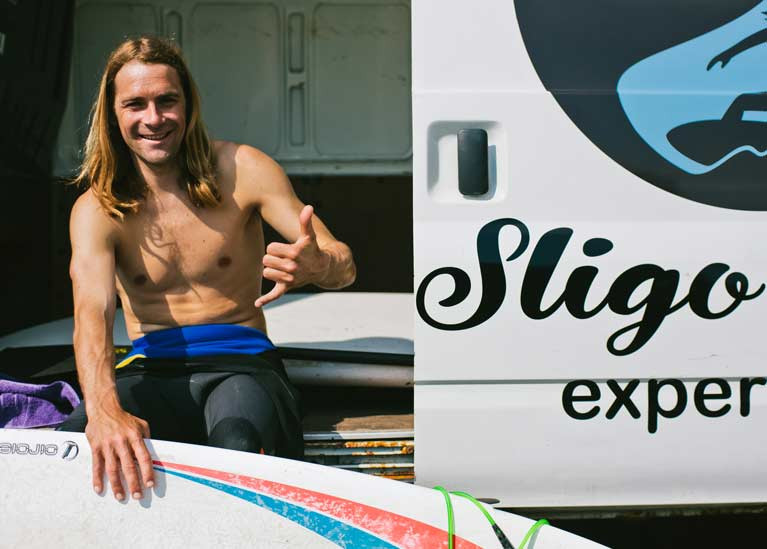Surfing schools have appealed to the Government to extend the Covid-19 wage subsidy scheme to their sector, as surfers return to the water.
They have also called on Minister for Tourism Shane Ross to lower the VAT rate for surf schools to ensure the sector can survive.
A statement issued by the Irish Surf School COVID Safety Working Group says it is “delighted to be able to open again with safety, as usual, the number one priority”.
Surf schools are required to submit detailed Covid-19 safety plans to the representative body, Irish Surfing, before re-opening, the statement says.
Safety measures include:
- Online bookings and payments
- Small group sizes (maximum of eight people from June 8)
- Travel restrictions (customers must travel no more 20 km from June 8)
- Two-metre social distancing for groups on land and in the water
- Hand and equipment sanitation must be observed
“Surfing is proven to improve mental health and boost well being,” the group says, and “after a gruelling two-month lockdown, more people than ever are hoping to relieve some stress and boredom by returning to the waves”.
 Learning to surf
Learning to surf
“Surf schools are now an important part of the prime offering of most of the most popular Irish seaside resorts,” the group says, with “hotspots” like Bundoran, Strandhill, Lahinch and Tramore drawing surfers from around the world.
“Surfing is not a niche sport in Ireland any longer. Surfing is now a mainstream recreational activity, which should come as no surprise to an Atlantic island nation that is now world-famous as a cold water surfing paradise,” it says.
The working group warns that some surf schools will not open until travel restrictions are relaxed again in July, and notes the majority of surf school owners cannot access the wage subsidy scheme for their employees.
“For many, this is going to delay reopening for some meaning their 2020 season will only be four or five weeks long,” the group says.
The working group says it is liaising with Sport Ireland, Irish Surfing and the Irish Association for Adventure Tourism to plan for the survival and recovery of the surf school industry.
However, it is seeking an extension of the wage subsidy and lowering of the VAT rate from 23 per cent. It notes that the rate is currently nine per cent in the Netherlands.
Irish Association of Adventure Tourism (IAAT) Brendan Kenny said that his group was “delighted to see that surf schools are re-opening, and we believe that the activities sector can lead the recovery of the Irish tourism industry”.
“Now more than ever, our country needs the physical and mental health benefits that activities deliver, so we'd encourage everyone to consider what experiences are available to them within the current public health guidelines,” Mr. Kenny said.
“There are however considerable obstacles for our sector including seasonal staff not benefiting from the wage subsidy scheme. We would urge the Government to deliver clarity on this issue which threatens businesses in our sector - none more so than the surf schools,” he said.
In relation to the VAT rate, the Irish surf school working group has appealed for its sector to be viewed as tourism, rather than sports business, and have the rate reviewed.
Irish Surfing development officer, Zoe Lally noted that a “surge” of people to beaches over the June bank holiday weekend had resulted in beaches and car parks being closed.
She said that some local authorities are “reluctant to authorise surf schools to reopen.”
“I would reiterate the importance of schools operating responsibly. Guidance from local authorities must be adhered to. It is particularly important that people are not enticed to travel past the 20-kilometre distance to surf and that surfing is not responsible for generating a surge in activity and crowds,” Ms. Lally said.































































